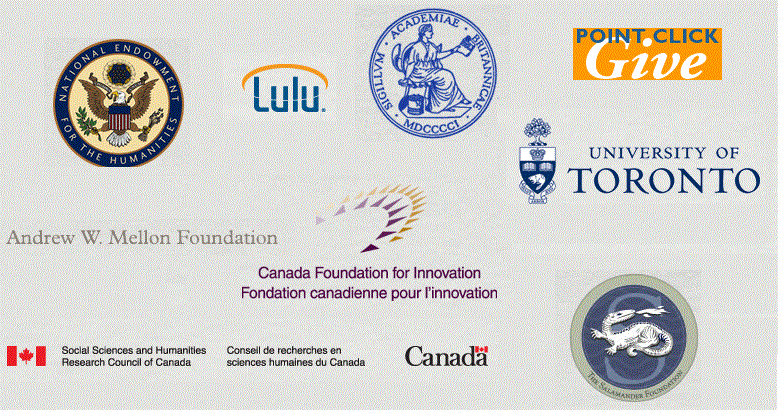Old Engli.sh
The Portal to the Language of the Anglo-Saxons
Read another, randomly chosen, past Old-Engli.sh News article:
A Step Forward: The Dictionary of Old English 2014 Progress Report
May 2015
April 2013
Dictionary of Old English keeps on growing at a steady pace: The 2012 Progress Report
The annually published progress report of the Dictionary of Old English (DOE) reveals ongoing advancement towards an eventual completion of the project but no groundbreaking innovations for 2012. Record amounts of donations allowed the DOE staff to continue its business as usual. |  Some of the donors that brought the DOE record donations in 2012 |
No news is good news. While there are no major changes at the Dictionary of Old English, its 2012 progress report shows that the editors’ hard, lexicographic work is continuing to slowly push the dictionary towards its ultimate goal - cataloguing the entire vocabulary of the earliest stage of the English language. Entries for the letter H are swiftly being compiled and might in fact be published in the near future. It has been five years since the Dictionary of Old English issued its last letter, G.
Perhaps the most remarkable and delightful piece of news of 2012 is the unmatched amount of donations that the DOE received. Honourable Hal Jackman’s gift over $500,000 was the largest single sum ever donated. But individuals and institutions, like the International Society of Anglo-Saxonists, the Canada Foundation for Innovation, or the British Academy, to name but a few, also donated generously.
It is to be hoped that this unparalleled generosity was not just a flash in the pan, but will continue into the coming years so that the DOE can meet its future goals and challenges.

|
Lemmatization of the entire corpus is also progressing well. For instance, about 70% of all citations for the letter S have now been lemmatized. Furthermore, work is continuing on the “Parker on the Web” project, which will eventually allow DOE users to simply click on a special symbol within a citation to see a thumbnail image of its original manuscript context. |
|
In 2008 the last letter of the dictionary, G, was published |
Perhaps the most remarkable and delightful piece of news of 2012 is the unmatched amount of donations that the DOE received. Honourable Hal Jackman’s gift over $500,000 was the largest single sum ever donated. But individuals and institutions, like the International Society of Anglo-Saxonists, the Canada Foundation for Innovation, or the British Academy, to name but a few, also donated generously.
It is to be hoped that this unparalleled generosity was not just a flash in the pan, but will continue into the coming years so that the DOE can meet its future goals and challenges.
- Download the DOE 2012 progress report here
- Find more OE news at www.oenewsletter.org